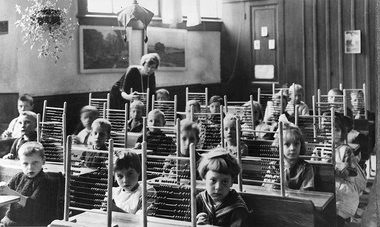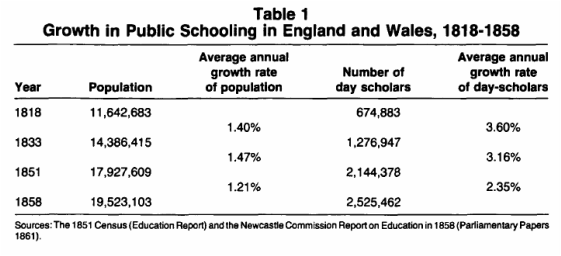HOW DID EDUCATION CHANGE?

Education changed during the Industrial revolution. In the beginning (before the 1800s) poor children couldn't afford the price to go the school, as school were not yet free in Britain, but then slowly school became compulsory, and poorer classed children could go to school, and many Acts and Unions took part in sponsoring of improving the schools in Britain. It changed the entire country because the country had more schooled children, and adults to work in better jobs and create better lives for the people in the next generation.
HOW DID IT CHANGE SOCIETY?
It changed society because more people could be educated better and the entire country could be more advanced and develop more because the more the people are educated the cleverer the country and it's economy get. It also changed society because each person could now get a degree for Science or mathematics, since they were well educated at school. And problems like medicals issues could be fixed.
WHAT ARE THE DIFFERENCES BETWEEN EDUCATION AFTER AND BEFORE THE INDUSTRIAL REVOLUTION?
|
BEFORE THE INDUSTRIAL REVOLUTION
|
AFTER THE INDUSTRIAL REVOLUTION
|
TIMELINE
Before the 1800s poor children could not afford to go to school, because schools were not free.
- 1833 The Government made it compulsory to have at least 2 hours of education per day for children who worked in factories.
- 1844 A union in Britain named: The Ragged Schools Union was created to give very poor children a chance to go to school.
- 1868 The Public Schools Act improved the public schools in Britain like Eton and Harrow.
- 1870 The Forster’s Act sponsored boarding school for primary
- 1880 School was compulsory for children under 10.
- 1902 The ‘Education Act’ created secondary school for children.
TABLE OF THE GROWTH IN EDUCATION

